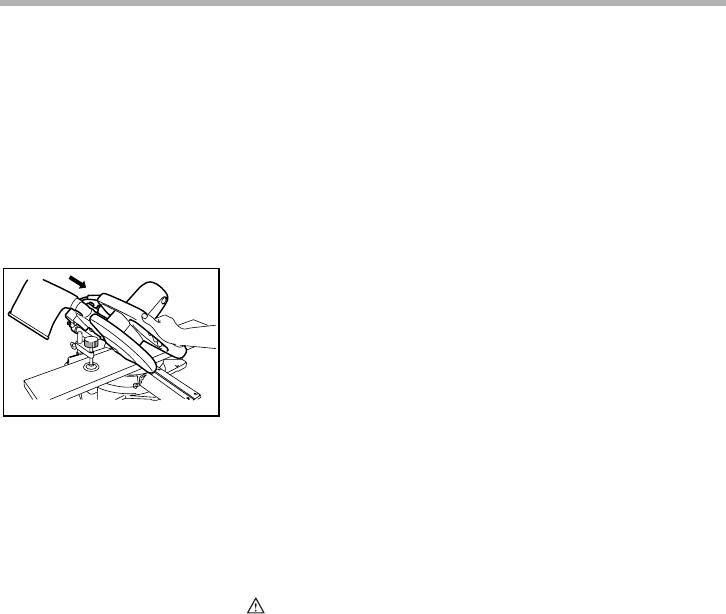
17
• Never perform the slide cut with the handle locked in the
lowered position by pressing the stopper pin.
• Never loosen the clamp screw which secures the
carriage while the blade is rotating. This may cause
serious injury.
3. Miter cutting
Refer to the previously covered “Adjusting the miter
angle”.
4. Bevel cut
Loosen the lever and tilt the saw blade to set the bevel
angle (Refer to the previously covered “Adjusting the
bevel angle”). Be sure to retighten the lever firmly to
secure the selected bevel angle safely. Secure the work-
piece with a vise. Make sure the carriage is pulled all the
way back toward the operator. Switch on the tool without
the blade making any contact and wait until the blade
attains full speed. Then gently lower the handle to the
fully lowered position while applying pressure in parallel
with the blade and PUSH THE CARRIAGE TOWARD
THE GUIDE FENCE TO CUT THE WORKPIECE. When
the cut is completed, switch off the tool and WAIT UNTIL
THE BLADE HAS COME TO A COMPLETE STOP
before returning the blade to its fully elevated position.
CAUTION:
• Always be sure that the blade will move down to bevel
direction during a bevel cut. Keep hands out of path of
saw blade.
• During a bevel cut, it may create a condition whereby the
piece cut off will come to rest against the side of the
blade. If the blade is raised while the blade is still
rotating, this piece may be caught by the blade, causing
fragments to be scattered which is dangerous. The blade
should be raised ONLY after the blade has come to a
complete stop.
• When pressing the handle down, apply pressure parallel
to the blade. If the pressure is not parallel to the blade
during a cut, the angle of the blade might be shifted and
the precision of the cut will be impaired.
5. Compound cutting
Compound cutting is the process in which a bevel angle
is made at the same time in which a miter angle is being
cut on a workpiece. Compound cutting can be performed
at angle shown in the table.
002179


















